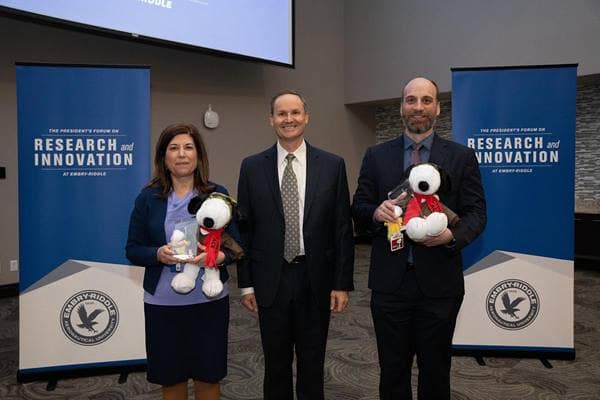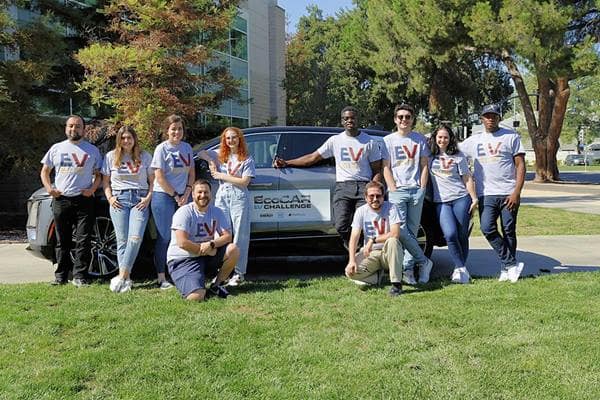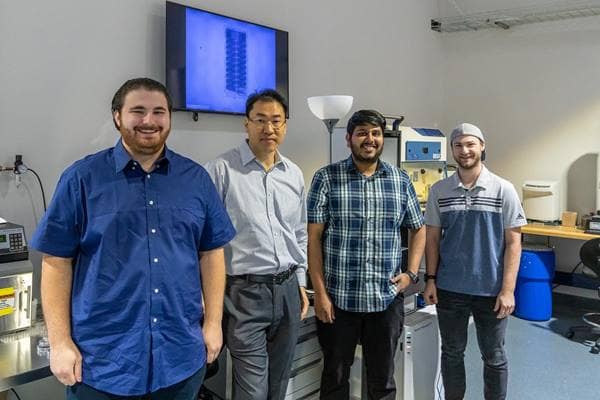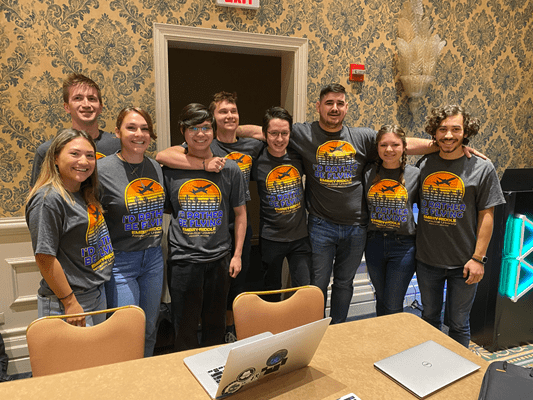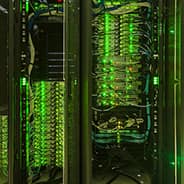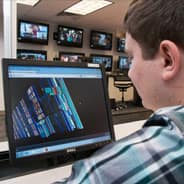Embry-Riddle Advantage
Computers are ever-present in today’s developed societies. We carry smartphones, amuse ourselves with video games, drive vehicles with embedded systems, and manage our daily lives from computers interconnected with the rest of the world. And, the systems that control modern aircraft and spacecraft represent technology at the highest level.
Embry-Riddle’s computer-related degree programs are designed to ensure that graduates possess the knowledge and the skills that will make them standout in the job market and in their careers.
Undergraduates in our Computer, Software, and Electrical Engineering programs receive hands-on experience in world-class facilities beginning in their first semester and culminating with a multidisciplinary capstone project that demonstrates their skills.
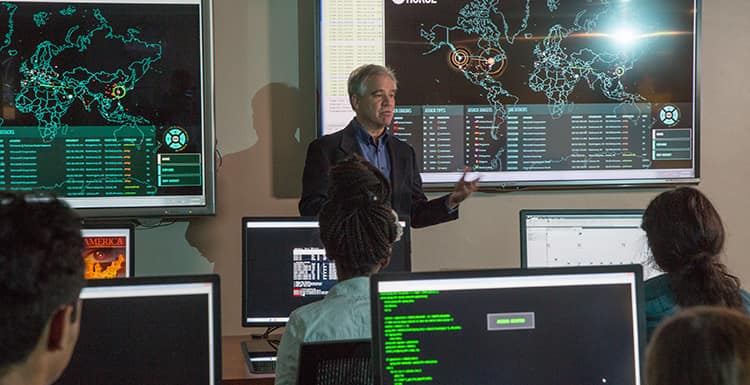
Our Cyber Intelligence and Security students are trained in reality-based scenarios that teach them to defend software and computer networks against crippling cyber attacks.
Technical Management undergraduates and master’s students are taught the skills to direct the resources of any organization toward its goals — regardless of their chosen discipline.
Employers choose Embry-Riddle graduates. That’s why students choose Embry-Riddle.
Degrees & Programs
Whether you are beginning your higher education or a seasoned professional, we have a degree program to help you achieve your goals.
No matter the level, from associate to master’s degrees, the Computers and Technology programs at Embry-Riddle are designed to teach you the real-world skills necessary to succeed in today’s technologically advanced workplace.
If you’re already working full time, you can select a program that allows you to attend online or part-time classes.
Explore our programs to see which is right for you.
Associate
Master’s
Professional Education
Review our non-credit continuing education offerings at proed.erau.edu.
Career Outlook
Just how important are high-level computer skills? Top aerospace companies like The Boeing Company, Lockheed Martin and Northrop Grumman employ more electrical, computer, software and systems engineers than aerospace engineers.
Not only are graduates with computer-related degrees in demand — they are well compensated. According to compensation software and data company Payscale, computer science was among the top paid majors at $75,100 for 2022.
Specific positions in computer-related fields earn hefty annual salaries, such as software developers ($120,730), computer programmers ($93,000), computer network architects ($120,520), computer hardware engineers ($128,170), and electrical and electronics engineers ($101,780), according to the Bureau of Labor Statistics.
Cyber Intelligence and Security graduates can expect both high wages and high demand in the job market. According to the Bureau of Labor Statistics, the 2021 median pay for information security analysts was $102,600, and the workforce is expected to grow by 35 percent between 2021 and 2031.
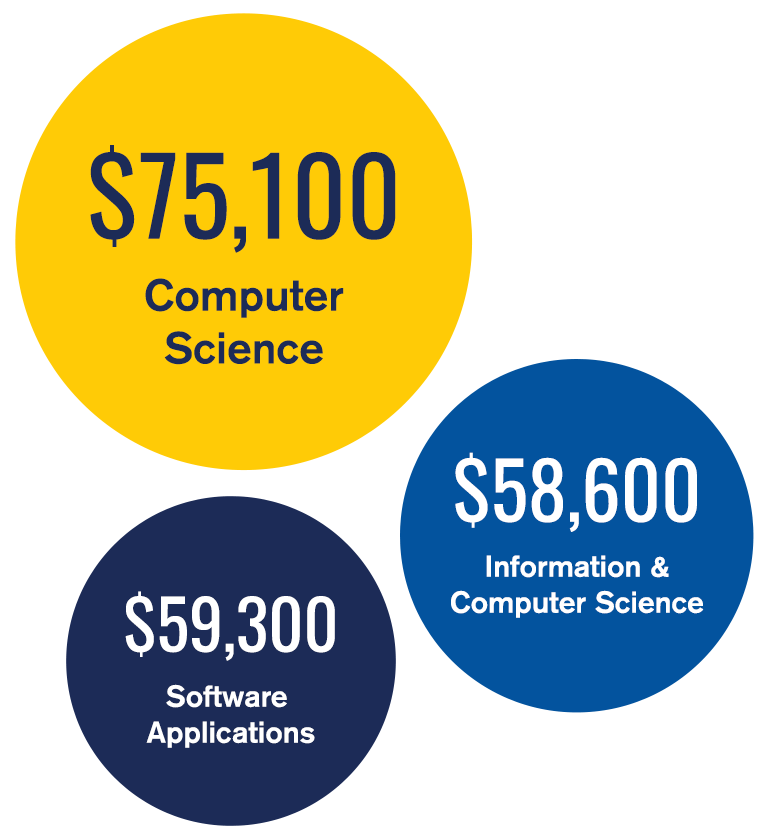
Average starting salary projection for graduates with a bachelor's degree, according to Payscale's College Salary Report 2021.
Source: Payscale
Research
Our faculty and students are actively involved in research related to computers and technology. Read about how they’re positively impacting industry in some recent projects below.
Learning Environments
Some of the most modern and high-tech laboratories and equipment in the academic world can be found at Embry-Riddle.

